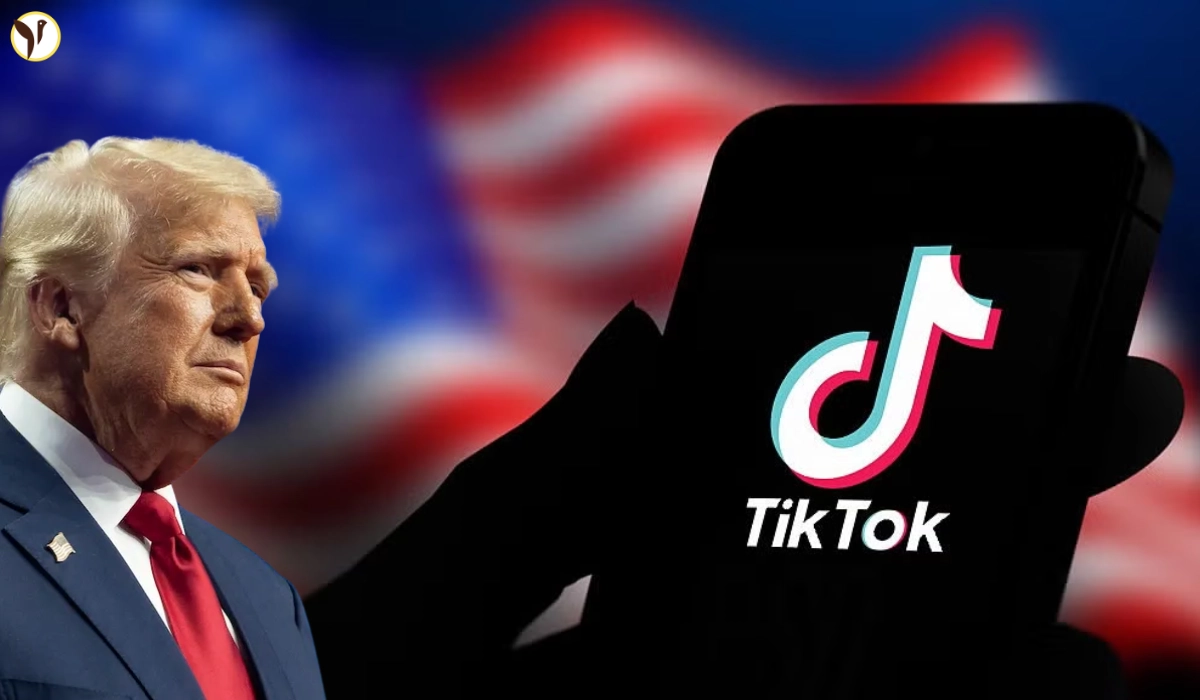Donald Trump recently talked about the whole TikTok deal situation, and honestly, he made it clear that it’s not just another business deal like the Nippon Steel buyout of U.S. Steel. At first glance, some might think, “Hey, a foreign company buying an American one — same deal, right?” But Trump says, no, it’s way more complicated when TikTok and China are involved.
First, TikTok isn’t just any company. It’s owned by ByteDance, which is a Chinese firm. And because of that, any deal that changes TikTok’s ownership or control has to deal with Chinese government rules. China doesn’t just let companies sell off pieces of themselves freely, especially when it comes to big tech companies with lots of data.
Why does that matter? Well, TikTok isn’t just a fun app where people post videos. It collects a ton of data from users — things like where you are, what videos you watch, how long you watch, and lots more personal details. U.S. officials worry that if ByteDance is forced to share this data, it could end up in the hands of the Chinese government. That makes this deal not just about business, but about national security too.
Trump said that while the US Steel sale is more of a straightforward business matter — jobs, factories, investments — TikTok’s case is different because it touches on privacy, security, and politics. And honestly, that’s why the U.S. government is so cautious.
So if you hear people comparing TikTok to the US Steel sale, just know they aren’t quite the same. TikTok’s future in America is tied up with international politics and data safety, which makes the whole thing much trickier than a simple company sale.
What’s Going On with the Nippon Steel-US Steel Deal?
Now, let’s take a look at the Nippon Steel deal. This is a story about a Japanese company trying to buy U.S. Steel, one of America’s biggest steel producers. Compared to TikTok, this is a pretty normal business deal.
Sure, some Americans are a bit worried about foreign companies owning big parts of the U.S. economy. It can feel strange when companies with ties to other countries start owning important factories here. But the difference is, the Nippon Steel deal is about traditional industry — steel mills, workers, manufacturing.
There aren’t the same privacy or national security issues at stake here. The government’s main focus is on whether the deal will keep jobs safe and protect American business interests. It’s not about sensitive personal data or political tensions.
Trump hasn’t shown much concern about this deal. It seems like he’s mostly focused on keeping an eye on companies linked to China, not Japan. The US Steel sale feels like a normal foreign investment, even if some people want America to keep more control over big companies.
In short, the Nippon Steel deal is mostly about economics and industry. It doesn’t involve all the complicated issues TikTok brings up with data privacy and geopolitics. So while both deals involve foreign companies buying U.S. businesses, the reasons people worry about them are totally different.
Why Is TikTok Such a Big Deal for U.S. Security?
TikTok isn’t just popular with young people — it’s one of the most used apps in the country. Millions of Americans scroll through it every day, sharing videos, following trends, and interacting with others. But behind the fun videos is a huge amount of user information.
When you use TikTok, the app collects lots of personal info: your location, the videos you like, how long you watch certain clips, your device info, and more. This data helps TikTok serve content you’ll enjoy, but it also raises big privacy questions. Who else has access to all this info? Can it be used in ways we don’t expect?
Because TikTok’s parent company is based in China, U.S. officials worry that the Chinese government might have access to American user data. Even if ByteDance says they keep data safe, many don’t fully trust that it’s impossible for the Chinese government to get involved. That’s why the app has been in hot water for years.
The concern isn’t just about TikTok itself — it’s about what the Chinese government might do with that data if they can get it. Could it be used for spying? For influence? For something else we don’t know yet?
This is why the U.S. government wants to be extremely careful with any deal involving TikTok. It’s not just about money or business; it’s about protecting Americans’ privacy and national security.
Adding to the challenge, China might block any sale of TikTok’s tech or data if they don’t like the terms. That means the U.S. has to find a deal that works for both countries, which is easier said than done.
Everyone is talking about the TikTok ban, so I got curious about their privacy settings.
— Brett Trembly (@btrembly) April 30, 2025
If you don't think TikTok has access to an absurd amount of your personal data, you're in for a wild ride...
But before that, a clip on how kids use TikTok in the US compared to China: pic.twitter.com/EuIKmKlLSy









